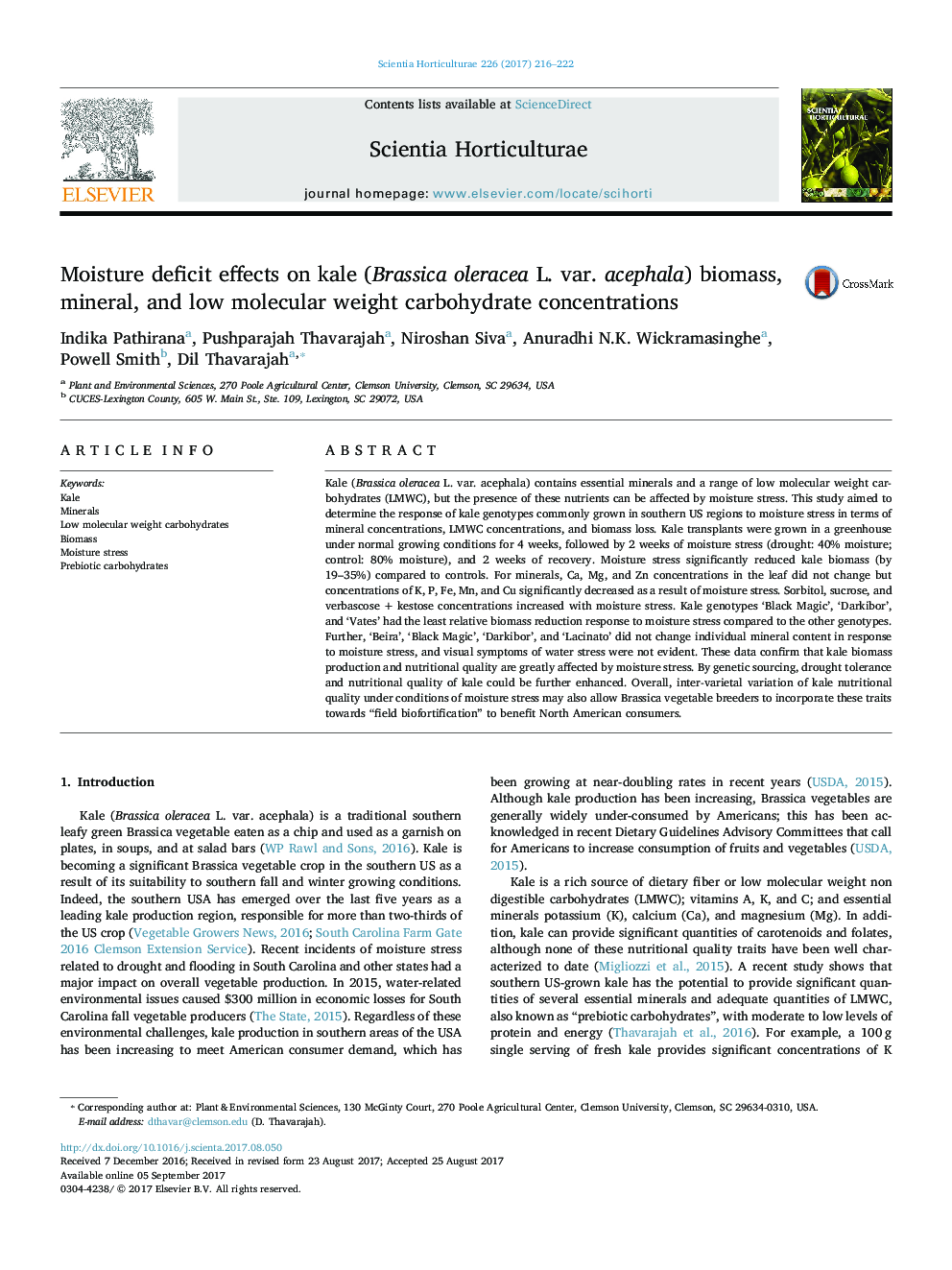| کد مقاله | کد نشریه | سال انتشار | مقاله انگلیسی | نسخه تمام متن |
|---|---|---|---|---|
| 5769362 | 1628772 | 2017 | 7 صفحه PDF | دانلود رایگان |

- Kale is a leafy green brassica vegetable mostly produced in the USA.
- Moisture stress significantly reduced kale biomass.
- Levels of Ca, Mg, and Zn did not change but others significantly decreased due to moisture stress.
- Sorbitol, sucrose, and verbascose + kestose increased with moisture stress.
- Kale biomass and nutritional quality are greatly affected by moisture stress.
Kale (Brassica oleracea L. var. acephala) contains essential minerals and a range of low molecular weight carbohydrates (LMWC), but the presence of these nutrients can be affected by moisture stress. This study aimed to determine the response of kale genotypes commonly grown in southern US regions to moisture stress in terms of mineral concentrations, LMWC concentrations, and biomass loss. Kale transplants were grown in a greenhouse under normal growing conditions for 4 weeks, followed by 2 weeks of moisture stress (drought: 40% moisture; control: 80% moisture), and 2 weeks of recovery. Moisture stress significantly reduced kale biomass (by 19-35%) compared to controls. For minerals, Ca, Mg, and Zn concentrations in the leaf did not change but concentrations of K, P, Fe, Mn, and Cu significantly decreased as a result of moisture stress. Sorbitol, sucrose, and verbascose + kestose concentrations increased with moisture stress. Kale genotypes 'Black Magic', 'Darkibor', and 'Vates' had the least relative biomass reduction response to moisture stress compared to the other genotypes. Further, 'Beira', 'Black Magic', 'Darkibor', and 'Lacinato' did not change individual mineral content in response to moisture stress, and visual symptoms of water stress were not evident. These data confirm that kale biomass production and nutritional quality are greatly affected by moisture stress. By genetic sourcing, drought tolerance and nutritional quality of kale could be further enhanced. Overall, inter-varietal variation of kale nutritional quality under conditions of moisture stress may also allow Brassica vegetable breeders to incorporate these traits towards “field biofortification” to benefit North American consumers.
Journal: Scientia Horticulturae - Volume 226, 19 December 2017, Pages 216-222